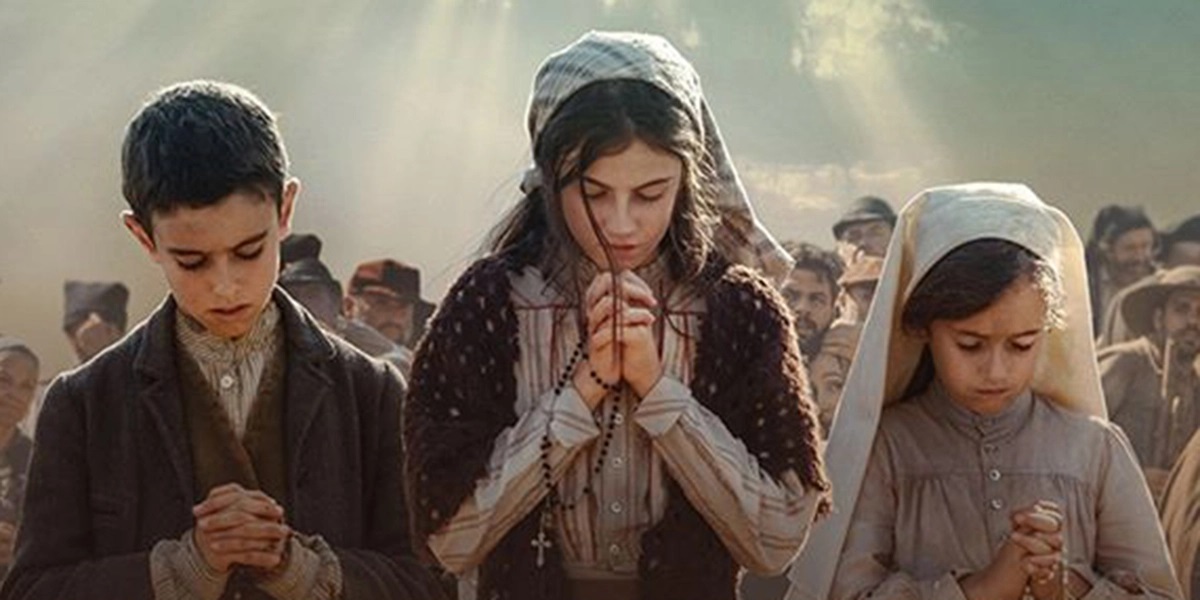Veteran actor Harvey Keitel co-stars in the new film, which revisits the story of the Virgin Mary appearing to three children in Portugal.

Marco Pontecorvo’s new film Fatima, a drama based on the apparitions of the Virgin Mary in Portugal in 1917 and the three young seers who experienced them, debuted August 28 with balanced but mostly-favorable reviews in major outlets like CNN and The New York Times, as well as in Catholic publications. It’s encouraging that mainstream publications even paid attention to this movie, given the cringeworthy attempts that have too often characterized Christian film. Some of this attention most likely stems from the aspects of the story that seem uncannily relevant to our struggles with the coronavirus today. A postscript in the movie tells us that the two younger seers, Francisco and Jacinta Marto, died in the influenza pandemic of 1918. And many Catholics will be struck by the scene of officials barring the door of the local parish and the grief of the priest who is thereby prevented from providing the sacraments.
But here I want to focus on one particular aspect of the Fatima script that is also relevant to our world a century later, though in a different way. Early in the film, the three shepherd children run to a promontory overlooking a landscape of rocky hills. As a game, Lucia, the eldest (Stephanie Gil), shouts “Ave!” to hear the word echo back, and the younger ones follow with “Maria!” They repeat this phrase “Ave Maria” alternately several times, counting the echoes that respond. Immediately, a loud thunderclap sounds out of a blue sky, frightening the children but ushering in the Lady. Thus, the first apparition begins.
Ave Maria, as Catholics know or can easily guess, is the beginning of the Hail Mary prayer in both Latin and Portuguese. But the children in this scene are not praying; steeped in Catholic belief and culture, they are merely shouting a familiar phrase to hear an echo. But the Lady they are calling to, comes anyway. How much of this is accurate to what really occurred is hard to say, but the evocative scene points to an important truth: words and names have power.
For the rest of the film, Our Lady is called “the Lady” or perhaps “the Virgin,” and her given name is rarely used outside of many repetitions of the Hail Mary (in English) as the children and pilgrims to Fatima pray the rosary in other scenes. The playfully shouted phrase becomes a powerful prayer that Lucia in particular clings to as she follows the Lady’s instructions to pray for peace and the conversion of sinners. She also uses it to pray for her personal intentions—the safety of her brother, fighting in the war, and the healing of her mother who falls ill partway through the series of apparitions. These intentions are fulfilled in ways that are portrayed as realistic and natural, yet clearly results of Lucia’s prayers.
We live in an age that uses words casually. Labels like racist, sexist, leftist, and extremist are thrown as darts toward those with opposing viewpoints. But, more importantly, the names and titles of God are blasphemously used as exclamations and curses by people who often say that they don’t believe such a Person exists. What if Jesus chose to come in a clap of thunder each time someone swore His name? The world would end swiftly. So far, He has not chosen to do this, but can we doubt that He hears His name nonetheless?
This lack of belief in the power of a Name translates logically to a lack of belief in prayer. Every mass shooting of the past decade has caused someone on the internet to complain that the “thoughts and prayers” being offered for the victims are useless, and that we need stricter gun laws instead. But what are laws, if not words? How can we trust in the power of words spoken by secular authorities if we do not trust in the power of words spoken by the Author of life and His messengers?
Our Lady told the children in the third apparition that if Russia were not consecrated, there would be many errors and persecutions—but, “In the end, my Immaculate Heart will triumph.” We must trust that we can call upon the name of the Lord and His mother, and that our prayers are heard and answered. Trusting this, let us take a lesson from this portrayal of the Fatima children and be careful for what—and to Whom—we pray.



